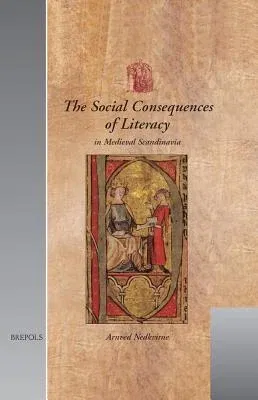Arnved Nedkvitne
(Author)The Social Consequences of Literacy in Medieval ScandinaviaHardcover, 1 October 2004

Qty
1
Turbo
Ships in 2 - 3 days
In Stock
Free Delivery
Cash on Delivery
15 Days
Free Returns
Secure Checkout

Print Length
279 pages
Language
English
Publisher
Brepols Publishers
Date Published
1 Oct 2004
ISBN-10
2503514502
ISBN-13
9782503514505
Description
Product Details
Author:
Book Format:
Hardcover
Country of Origin:
US
Date Published:
1 October 2004
Dimensions:
24.84 x
16.76 x
2.49 cm
Genre:
Medieval (500-1453) Studies
ISBN-10:
2503514502
ISBN-13:
9782503514505
Language:
English
Location:
Turnhout
Pages:
279
Publisher:
Weight:
703.07 gm